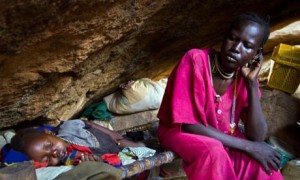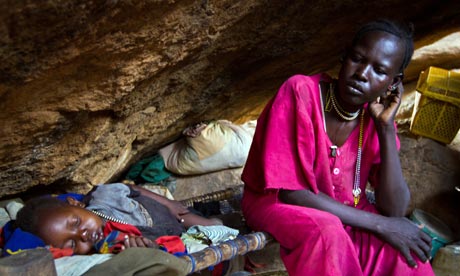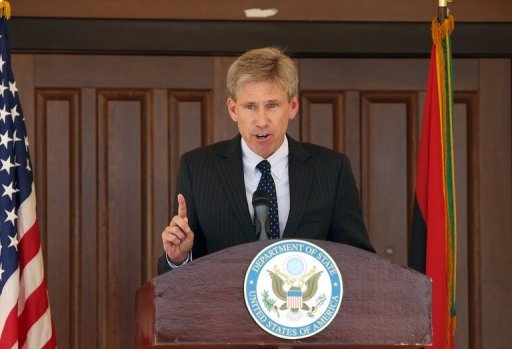
Khartoum (AFP)— There is no humanitarian crisis in wartorn South Kordofan and Blue Nile states, Sudan said on Tuesday as an international plan to get aid into the area expired without any food reaching the hungry.
Despite months of talks about how to get assistance into rebel-held areas of the two border states, where fighting began more than a year ago, the number of people affected by the war has continued to increase.
More than 240,000 have now sought refuge in neighbouring South Sudan and Ethiopia, the UN said last Friday.
Including the refugees, more than 900,000 people are estimated to be displaced or severely affected, the UN has said, noting reports of serious food shortages and lack of adequate health care in rebel-held areas.
“There is no humanitarian crisis in South Kordofan and Blue Nile but there is a humanitarian need and it has to be taken care of, especially in the health sector and drinking water,” Sudan’s top aid official, Sulaiman Abdul Rahman, told reporters on Tuesday.
He confirmed the expiry of a memorandum, reached with the UN, Arab League and African Union, which was supposed to allow for aid delivery throughout the warzone, including to rebel-held areas.
The three organisations issued their so-called Tripartite proposal in February as international concern mounted over malnutrition and food shortages in the two states.
Khartoum had cited security worries in tightly restricting the operations of foreign aid agencies.
The rebel Sudan People’s Liberation Movement-North (SPLM-N) agreed to the Tripartite plan in February, followed by Khartoum in June.
Memoranda to implement the deals were not signed separately with the government and rebels until August 4 and 5.
The memoranda were valid for 90 days and called for ceasefire zones that would allow the aid to flow.
But the agreements were never implemented.
In one of its most strongly worded statements on the situation in the two states bordering South Sudan, the UN’s Office for the Coordination of Humanitarian Affairs (OCHA) said last month the Tripartite deal still awaited a “green light.”
It said the UN, AU and Arab League presented various detailed plans but “neither the government nor the SPLM-N have yet formally agreed on a concrete plan of action for assessment and delivery of aid.”
Rahman blamed Sudan’s Tripartite partners for the delay but put “full responsibility” on the rebels.
The insurgents, in turn, said government delays were to blame.


